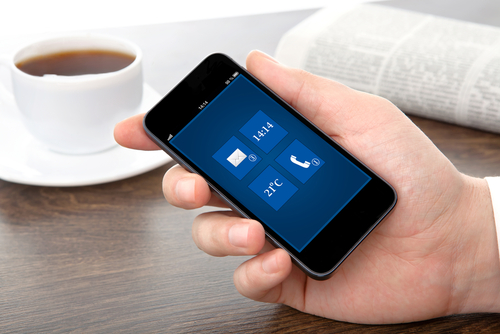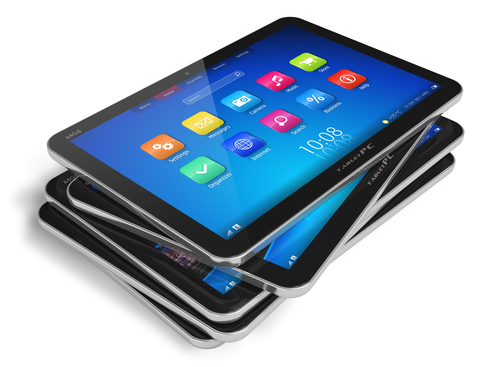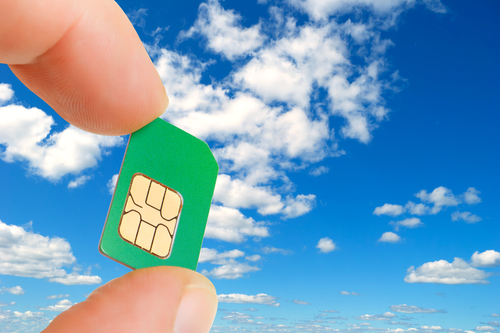August 27th, 2013

Over the past few months, cloud computing has become one of the hottest buzzwords of 2013. Many are still unsure of exactly what cloud computing is, however. Many more are unsure how to implement a cloud system into their business.
Cloud Business Review posted six advantages afforded to businesses who implement cloud computing to help those who are still wary of the technology.
A cloud system is implemented usually within 24-hours. A network this powerful would require an IT-team and weeks to finish, but the cloud accelerates and simplifies the whole process. As a cloud provider, Geek Rescue customizes your cloud system based on your needs and gets you up and running almost immediately. There’s no need to add hardware or personnel.
The nature of the cloud allows it to be uploaded to a server quickly. This means that when a server hosting the cloud goes down, your system is moved to a working server with hardly any downtime. This means costly outages when employees stop working are a thing of the past.
Even for small businesses, ensuring that the right employees have access to vital files is difficult. The cloud makes sharing much easier and allows for employees to access files for virtually anywhere. With mobile access, your employees work from anywhere and always have access to the files or applications they need.
Over time, your needs will likely change. A cloud network is highly scalable and allows you to increase memory or data storage quickly. While a physical network would require days of work and probable downtime to finish upgrades, the cloud effectively increases your capabilities in no time.
The uses for cloud computing are practically limitless. Regardless of your industry, call Geek Rescue at 918-369-4335 to discover how the cloud could help you do business more efficiently.
August 27th, 2013

Adding security software to your smartphone or tablet is a necessity. Just as you need protection from malware on your home computer, you mobile device needs protection too. In fact, since you’ll be traveling around and possibly using unsecured networks, security on your mobile device may be even more important.
One major concern for many users, however, is how much battery will be drained by effective mobile security apps. As Paul Lilly writes for Maximum PC, AV-Comparitives, an independent testing lab, put 16 of the top security apps to the test to find out which one you should consider for your mobile device.
Surprisingly, for the leading apps battery usage isn’t much of a concern. Even the security apps that drain your battery the most won’t take more than about 3-percent.
Most of the apps were also incredibly effective detecting malware. In fact, all but one detected at least 98-percent of almost 3-thousand malicious applications collected for the test.
The lesson here is that there are a number of effective mobile security apps available to keep your device safe without hurting performance. There are even free options that perform as well as some of their paid counterparts.
Without these apps, your mobile device could be infected by malware, which results in a loss in performance and the monitoring or harvesting of your data. Some malware is even capable of taking over functions of your device, like sending texts or taking pictures.
For help keeping your devices secure or to clean or fix a device, call Geek Rescue at 918-369-4335. Like we always say, if it boots up or turns on, we fix it.
August 26th, 2013

When your phone is stolen, there are a number of things to worry about beyond just getting a new phone. All of our smartphones carry personal information that is used to access our online accounts when it falls into the wrong hands. Before getting a new phone, our first concern should be to lock down access to our old phone.
As Jaeyeon Woo reports for the Wall Street Journal, Samsung and LG are taking measures to not only prevent smartphone theft, but also to keep your data safe after theft. Their new anti-theft tool, or “kill switch”, would completely disable a phone that’s been reported stolen. This means the device becomes inoperable, even with a new SIM card or hacking procedures.
A growing business overseas is to ship and sell stolen smartphones to the U.S. This “kill switch” feature would take a tremendous bite out of that industry. However, users will have to register their devices before they are stolen in order to use the kill switch function.
Samsung and LG’s efforts build on the recently publisized developments for Android phones to help find and lock lost and stolen phones. Those using iOS devices also have similar functions to protect their lost and stolen devices.
The kill switch, however, is seemingly the first tool that bricks a device in any circumstance. Since the phone is rendered useless, the hope is that thefts will drop dramatically. In any event, users won’t have to worry that the theft of their smartphone will also lead to the theft of their identity.
To keep your smartphone or other device more secure, contact Geek Rescue at 918-369-4335. We offer a variety of security options and also fix broken devices and devices with infected with malware.
August 23rd, 2013

Imagine your text alert on your smartphone goes off. You eagerly check your new message and find that it’s from an unknown number telling you that your email account has been hacked. The message informs you that you’ll need to text back a word or phrase that they give you, likely to verify your identity or something. What do you do next?
The Federal Trade Commission is warning the public not to text back. These text messages are part of a new scam and the target is your personal information.
When you reply to these texts, the scammers gain information about you and your smartphone. This gives them the tools they need to access your data and compromise your accounts.
Even though plenty of people around they world learn the unfortunate news that their email has been hacked, there probably aren’t many, if any at all, that are warned via text message from their email provider. If you are contacted about a compromised account, be it your email, bank account or credit card, the company will likely do it on a more secure channel.
These text messages may also include a link for you to follow for more information or continue the process of fixing your email. These links are tempting as you want to find out more information, but don’t click them. Just by following the link, you’ll likely be installing malware onto your device, which hackers use to monitor your activity and steal your data.
What you can do is alert your phone’s provider about the message. Most of the large providers have a spam number you can call, or forward these text messages to.
If you feel that malware, or any other type of malicious software, has been installed on your phone or your smartphone is just not performing like it should, contact Geek Rescue at 918-369-4335. We fix smartphones.
August 22nd, 2013

Everyone is clamoring for an upgrade in security for their smartphone and Google has applied for a patent that seemingly will do just that.
Alex Colon, of GigaOM, writes that Google patented a “location-based security system for portable electronic devices.” So how will this help keep your smartphone safe?
You’re already letting Google know where you are all the time. Using Google Maps or just leaving location based searches on, your GPS and Google already have a close relationship.
This new technology builds off of that to change the settings on your phone based on where you currently are. For example, when you’re at home, the security settings will be set to low because there is little chance of anyone swiping your phone from your coffee table. However, when you venture outside and into public, your phone will automatically beef up security due to potentially more dangerous surroundings.
Without you having to physically change anything, your phone will demand a password to advance past the lockscreen. Other security measures may be put in place, as well.
We’ll have to wait and see exactly how Google plans to use this new patent. In the meantime, contact Geek Rescue at 918-369-4335 to discover all of your options for keeping your smartphone safe and secure. We protect devices from hacks, viruses and malware and also fix broken devices.
August 15th, 2013

With the number of businesses, both large and small, adopting some sort of cloud computing technology, it becomes increasingly important to study trends and predict innovations. Rebecca Grant, of VentureBeat, explored the evolving trends of cloud computing and revealed where most expect and want it to go from here.
The mobile user is the main focus in most industries right now because it is such a rapidly growing group. In the context of cloud computing, mobile innovations allow for streamlining your business, allowing access from anywhere and easy sharing of documents. The bring your own device boom has spurred this need. There’s an added bonus of quick and simple recovery after disaster as well.
Rather than creating solutions that can be adapted for various industries, we’ll likely see more industry-specific cloud computing options. Rather than a horizontal focus, we’ll see more vertically focused start-ups bring narrowly focused innovations to the marketplace.
This is a way to build applications without a regard for infrastructure. It’s been recognized as a rapidly growing sector of the cloud, which empowers developers.
More and more data is available to businesses, which means the demand for applications capable of interpreting that data is on the rise, or soon will be. With cloud computing, data can be collected and reported in one place and easily shared across an enterprise.
- Outsourcing And Outservicing
With wide-spread cloud technology, outsourcing will increase. Companies can focus on their unique niche and seamlessly outsource the areas of work they aren’t as good at. This makes both starting a business and running it smoothly easier.
Cloud computing covers a vast array of topics, such as security, storage, hosting and data analytics. As more companies adopt at least part of the cloud into their business, more innovations will increase its usefulness.
To find out how the cloud helps your business, contact Geek Rescue at 918-369-4335.
July 29th, 2013

Your TV is flooded with commercials touting the latest and greatest tablet computers. The internet is full of consumer reviews and articles talking about the pros and cons of the latest tablet. Even a typical workplace features a certain reliance on a tablet. CIO’s Josh Fruhlinger published a look at some traditional industries that have changed the way they do business thanks to a tablet.
The first may also be the most surprising. Members of the clergy have jumped on the tablet bandwagon, which features bible apps and other helpful tools like Dropbox. Even the pope has tweeted from an iPad.
Trash collection workers are also utilizing the power of the tablet. Workers on their route can see who has paid their bill and who hasn’t. In programs like Tulsa’s recently adopted service, workers can also note in real time who is recycling correctly and staying within the rules. Similar programs can help police and fire departments. Also helpful are the GPS and navigation features.
When you think of doctors doing their rounds in a hospital, you probably envision them with clipboards containing a patient’s medical history. Now, those doctors can carry one tablet with all of their patients’ information and much more. X-ray’s and test results can be shown to patients much faster, which is vital in a profession where speed of service can save lives.
Whether you have adapted your business to tablet use or just enjoy the convenience of using one at home, Geek Rescue has you covered for maintenance. When your tablet starts acting up, bring it to Geek Rescue. They also put measures in place to protect your tablet against viruses, malware and other harmful programs. Come by or call us at 918-369-4335.
July 25th, 2013

At the beginning of July, a vulnerability on Android phones was discovered, which allows hackers to gain access to your data or even take control of your phone. Listening to phone calls, taking photos and stealing passwords is all possible if your phone is exploited.
To their credit, Google acted quickly to try to seal up the hole in their mobile operating system’s security. The patch they released takes time to be sent out to every subscriber, which means hackers were still able to take control of phones for weeks. It takes time for updates to filter down from Google to your handset because there are so many different manufacturers making Android phones. Each manufacturer and network operator checks the update before sending them out and sometimes modifications are needed to run with customized user interfaces.
BBC News reports this delay in patching lead to the first reported cases of hackers exploiting the so-called ‘master key’ bug. A trojan virus was added to two otherwise legitimate apps in China.
Users should remember that while Google’s Play app store is monitored and apps checked for malware, any apps downloaded outside Play aren’t verified. That’s where many users come in contact with viruses and malware.
To keep your phone and your data secure, only download verified apps. For security software and other measures to make your phone as safe as possible, contact Geek Rescue at 918-369-4335.
July 23rd, 2013

We all have mobile phones. In fact, an often quoted statistic floating around the web claims more people have cell phones than have toothbrushes. Whether or not you believe that, you have to believe that hackers view phones as a juicy target.
You may not realize that it’s your SIM card that could be most vulnerable. That tiny little card usually found parked next to your battery gives away a lot of information. Jeremy Kirk, of PC World, reports that their are 7-billion SIM cards currently in use worldwide and many still use a weak form of encryption capable of being broken in mere minutes.
You may still be wondering exactly how outdated encryption from your SIM card results in your data being stolen. Let’s say a cyber criminal sends a piece of code, which can be anything but in this case we’ll call it a malicious software update, over SMS to your phone. Your phone rejects that code because it wasn’t authenticated by a trusted source. However, your SIM card responds with an error message carrying it’s encrypted key. Once that encryption is broken, the cyber criminal has the key and can send any malicious software they want to your phone and your device will accept them as coming from a trusted source.
SIM cards were thought by many to be the final piece of unhackable tech in your phone. These new revelations reveal that new security measures are needed to protect you from evolving cyber crime tactics. In order to keep your phone secure and your data safe, contact Geek Rescue at 918-369-4335. We use the latest security software and measures to keep criminals out of your private data.
July 17th, 2013

The Children’s Online Privacy Protection Act was initially enacted in 1998 and mandated the collection of data from children under 13. Known as COPPA, the rule was amended in 2012 to cover a wider range of information, which addresses the increase in mobile usage and social media. This modified version went into effect July 1st, but Grant Gross, of ComputerWorld, reports that some websites are struggling to stay in compliance.
COPPA requires special care and security for children’s identifying information, including cookies, geolocations, photos and videos. Critics claim that what the FTC is asking of developers is next to impossible, however.
The rule is meant to protect children against targeted advertising and online tracking, so that’s where the FTC suggests websites focus their attention. Though violations of COPPA can carry up to a $16-thousand penalty, most believe there will be a grace period for developers to hone new policies and develop new strategies to comply.
As a parent, you can look for apps with a seal of approval from the Association for Competitive Technology and a group called Moms With Apps. Their Know What’s Inside campaign awards a seal of approval for developers who comply with the recommended practices of COPPA.
To be sure you keep your children completely safe online, you’ll also need Geek Rescue’s Safety Net. For about a dollar per day, you get the ability to keep children away from potentially dangerous and inappropriate sites. Call Geek Rescue ta 918-369-4335 to learn more about keeping your kids safe.




















